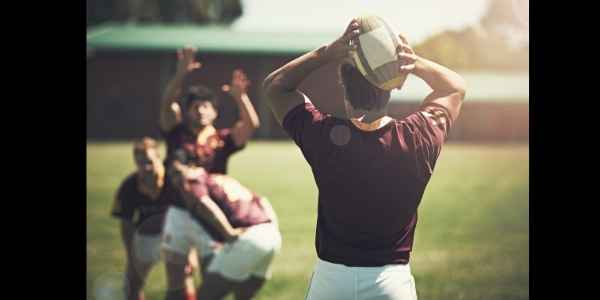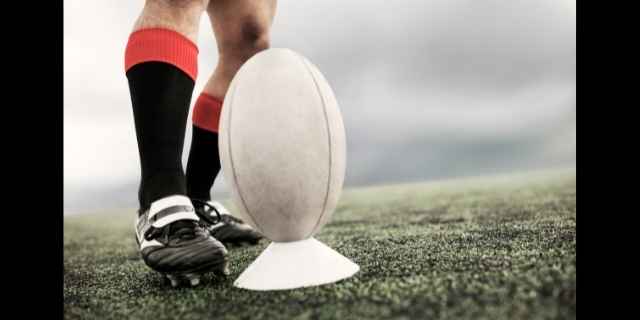Who are the greatest rugby players to have played for the All Blacks?
Who had the greatest skills and contributed the most to New Zealand rugby?
You may be able to guess the players on our list. But the order may surprise you! Let’s start with the fifth greatest player and work our way up to the top.
Rules For Our Ratings Of Greatest New Zealand Rugby Player
Here are the ground rules for selection.
Played international rugby since 1970

We only selected from All Blacks who played since 1970. Why? Because we saw them play!
This rules out legends of the game like Dave Gallagher and Colin Meads.
Currently retired from international rugby
We ruled out players who are still playing at the highest level.
Current players like Beauden Barrett may displace someone from our list. But we’ll only decide on that once they’ve retired.
Number #5: Kieran Read (Lock)
Kieran Read was a sporting all-rounder as a boy. He was an underage international cricketer but chose to focus on rugby after he left school.
Although he started on the flank, Graham Henry put him at number eight for the All Blacks. Two years after his first cap in 2008, he was voted New Zealand Player Of The Year.
Skillset
Read was a tall and rangy player with extraordinary athleticism.
He could push past tackles and run rampant into open space.
In 2010, he was the second-highest try-scoring All Black. Only the fullback Mils Muliaina topped him!
Read’s athleticism also made him an outstanding lineout operator, and he could pick off opposition throws.
But what sets him apart was his link play and passing. There were plenty of All Blacks moves that were kept alive by a deft offload by Reid.
Achievements
Read was first-choice number eight in the 2011 when the All Blacks won the Rugby World Cup.
When the All Blacks went on a lengthy unbeaten run in 2013, Read was voted World Player Of The Year.
He had stood in for captain when Richie McCaw was unavailable. When McCaw retired, Read took over the captaincy.
Downs as well as ups
Read might be higher on our list if he hadn’t been on the wrong end of the scoreline in some historic matches.
In 2018, he led the All Blacks to their first defeat to Ireland in a test match in Chicago.
Read was captain when England soundly beat his team in the semi-final of the 2019 World Cup.
Number #4: Jonah Lomu (Winger)

Lomu combined the size of a lock with the blistering pace of a winger.
He may not have been the most skilled winger the rugby world has ever seen. But the affable giant transcended rugby and became the sport’s first true superstar.
Unforgettable impact on the sport
His impact was devastating from the time he burst onto international rugby through Sevens tournaments.
But he made his name at the 1995 World Cup, during which he turned twenty years of age.
Lomu famously scored four tries against England in the semi-final.
His rampaging run for his first try saw him handing off players in white shirts before simply running straight over the hapless English fullback.
That was the start of the legend.
Achievement
Lomu never actually won a World Cup with the All Blacks. The Springboks devised a successful plan to defeat New Zealand in the 1995 final.
That plan was to double and triple-tackle Lomu whose teammates couldn’t counteract his removal from effective play.
Four years later, Lomu had recovered sufficiently from a devastating kidney disorder to go to the 1999 World Cup. He scored tries in every match.
In the semi-final against France, he swatted one defender aside, swerved, and bulldozed through five French players to get over the line for his first try.
That was the first of two tries. However, his brace wasn’t enough to win the match.
Adversity
Over the next few years, Lomu’s kidney condition was starting to affect his performance. But he never made excuses, even when consigned to the bench or out of the squad.
He finally retired in 2007. The rugby world was devastated in 2015 when he died from a heart attack.
Number #3: Sean Fitzpatrick (Hooker)

Sean Fitzpatrick was the finest technical hooker that we’ve ever seen.
He spent hours practicing his throwing and was the best in the business. He was also an outstanding scrummager and had excellent skills rucking over the ball.
Fitzpatrick also picked up 12 tries in 55 tests by his sharp nose near the try line.
He knew when to take a wide position with the rest of the pack hammering the line. He scored plenty of tries by taking the final pass as the ball went wide.
Early days
Fitzpatrick picked up his first cap in 1986. He wasn’t expected to feature much in the World Cup of 1987.
But he stepped up as an injury replacement to the first-choice hooker (Andy Dalton). The young hooker was phenomenal as the All Blacks won the tournament.
Those were different times. Remember, these players were amateurs. This is what he later said about that triumph.
My underlying memory was: “Thank God that’s out of the way.” We satisfied New Zealand and we all went back to work.
Best All Blacks Quotes
Leadership
Fitzpatrick was given the captaincy of the All Blacks in 1992. This was on the back of a loss in the 1991 World Cup semi-final.
His first big leadership task was in 1993 when the British & Irish Lions toured New Zealand.
The Lions lost narrowly in the first test but won the second. This meant that the series was tied with everything to play for.
The All Blacks were under intense pressure, given their exit from the World Cup. But Fitzpatrick rallied his troops. He led the All Blacks to a decisive win of 30 points to 13.
Downs and Ups
Fitzpatrick’s All Blacks had further ups and downs before the 1995 World Cup rolled around.
Jonah Lomu lit up that tournament, but the Springboks shackled the great wing in the final and lifted the trophy.
However, he led the team to a historic achievement the following year.
Fitzpatrick’s All Blacks traveled to South Africa and won a famous touring series. That was the first time that the All Blacks had won a series in South Africa.
Number #2: Ritchie McCaw (Flanker)

In our list of the greatest flankers of all time, McCaw tops the rest of the world.
But he isn’t our top choice of greatest All Black. Read on to find out why.
Key skills
Ritchie McCaw went on tour with the All Blacks to Argentina, Ireland, and Scotland when he was twenty years old.
He played in every match and stood out through his anticipation of play and his athleticism. The rugby world sat up and took notice.
McCaw was a great all-rounder who he excelled at disrupting opposition rucks and joining the attack in open play.
Leadership
In 2007, Jonah Lomu rampaged his way through to the semi-final of the World Cup.
He scored two tries in that match against France. Yet New Zealand still lost the match.
A young Richie McCaw had been appointed captain for the World Cup. His decision-making was questionable and let France fight their way to a win.
It’s fair to say that the flanker turned things around in the next two World Cups. He led the All Blacks to two trophies, one in 2011 and the next in 2015.
The 2011 final was a repeat of the losing semi-final four years before. The All Blacks were up against France again.
It was a tight match but McCaw led through grit and hard work to hold out for the win.
Greatest All Black: Dan Carter (Flyhalf)

Dan Carter is our pick for the greatest All Black in the modern era. It was a hard choice between the flyhalf and flanker Richie McCaw.
We’ll explain the decision after we describe Dan Carter.
Early international career
Carter was twenty-one when first selected for the All Blacks against Wales in 2003.
He went to the 2003 World Cup but was relegated to the bench in the knock-out stages. He hadn’t displaced the mercurial Carlos Spencer as first-choice flyhalf or solid Aaron Mauger as first-choice twelve.
Breakthrough season
The All Blacks rolled the dice in 2004 and installed Carter as first choice flyhalf on a tour to Europe.
But it was the following year when the rugby world realized that a new star was emerging. The British & Irish Lions toured in 2005 and were demolished.
Dan Carter’s second test was almost a one-man show. He kept his team driving forward, distributed wide, made incisive breaks and solo runs, and kicked his points.
Complete flyhalf
Dan Carter could sidestep and break with devastating pace. That was box-office, but other New Zealand flyhalves had plenty of flair.
It was Carter’s steady game management skills that brought a new level of consistency to the All Blacks. He made the right choices between running, passing, and kicking.
His territorial kicking game kept the All Blacks moving forward. And his place-kicking was outstanding.
Adversity
Unfortunately for the flyhalf, injuries would beset his career.
The All Blacks were hot favourites to win the 2007 World Cup and ran up massive scores in the pool stage.
With Carter at the helm in the quarter-final against France, they notched up a thirteen-point lead. But Carter was injured out of the match in the second half.
As the French rallied, the All Blacks lost their shape and composure. As captain, Richie McCaw was unable to pull his team back into the match.
Four years later, Carter tore his adductor during kicking practice before a pool match. That put him out of the tournament that New Zealand subsequently won.
Triumph
Carter arrived at the 2015 World Cup with unfinished business.
The flyhalf was outstanding in the final against Australia. His calm game management kept the All Blacks on course.
He kicked four penalties, two conversions, and an outstanding drop-goal for the winning score. World Rugby appointed him player of the year for the third time.
Why Carter over McCaw at the number one spot?
Both Cater and McCaw were the best in the world in their respective positions for many years.
We consider flyhalf to be a more technically difficult position than flanker.
It’s also a position of higher pressure, especially when the flyhalf is the main placekicker. Miss a kick and the ten takes the blame for a narrow loss. Flankers aren’t under the same amount of scrutiny.
Greatest Or Most Famous?
We consider a player’s fame to be different to how good they are.
Would a list of the best known players be different to the best players? We’ve put that question to the test in our assessment of the most famous All Blacks.